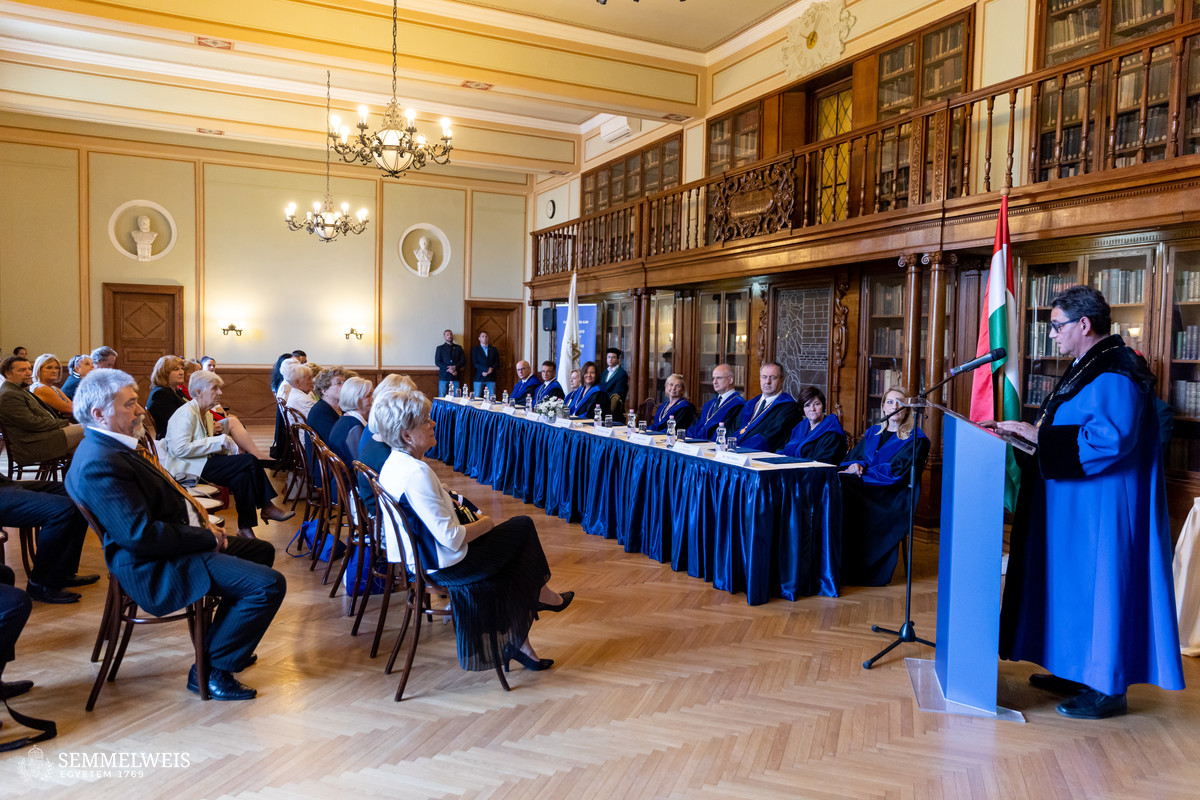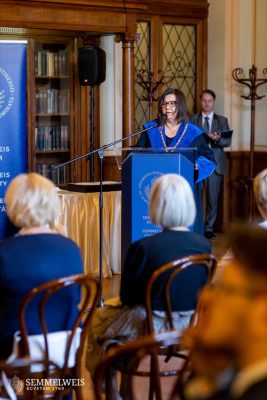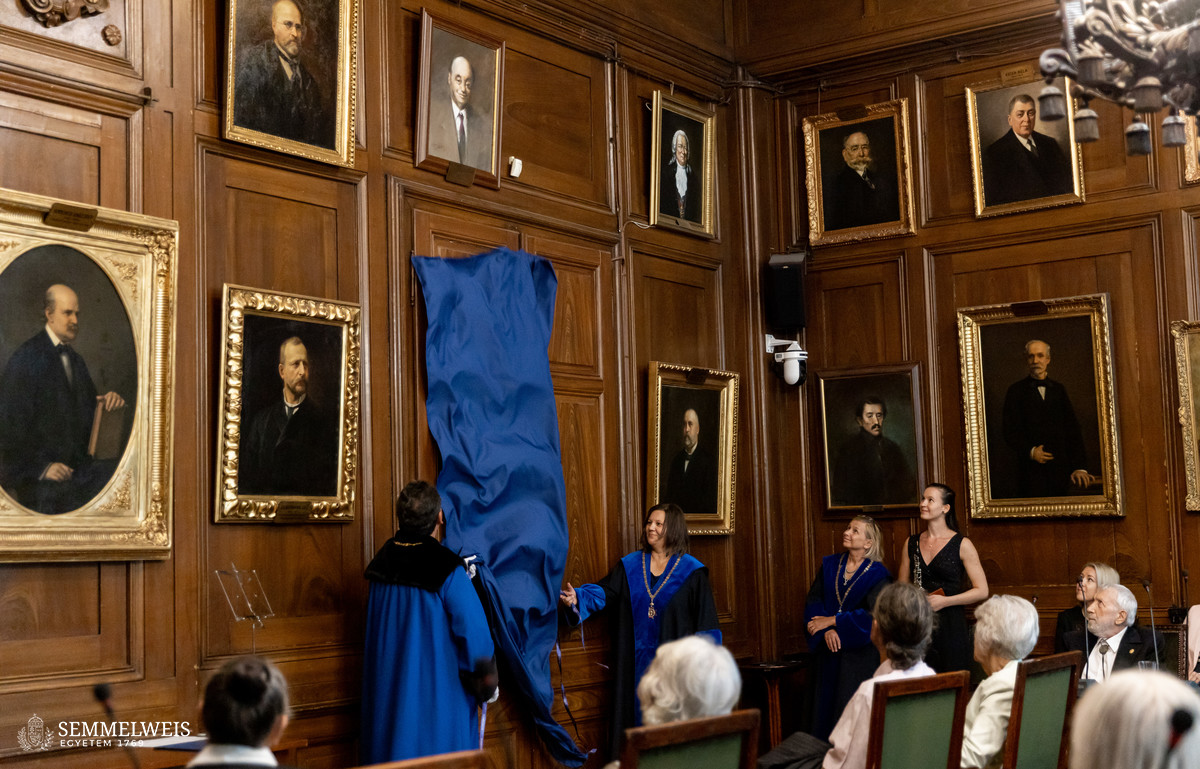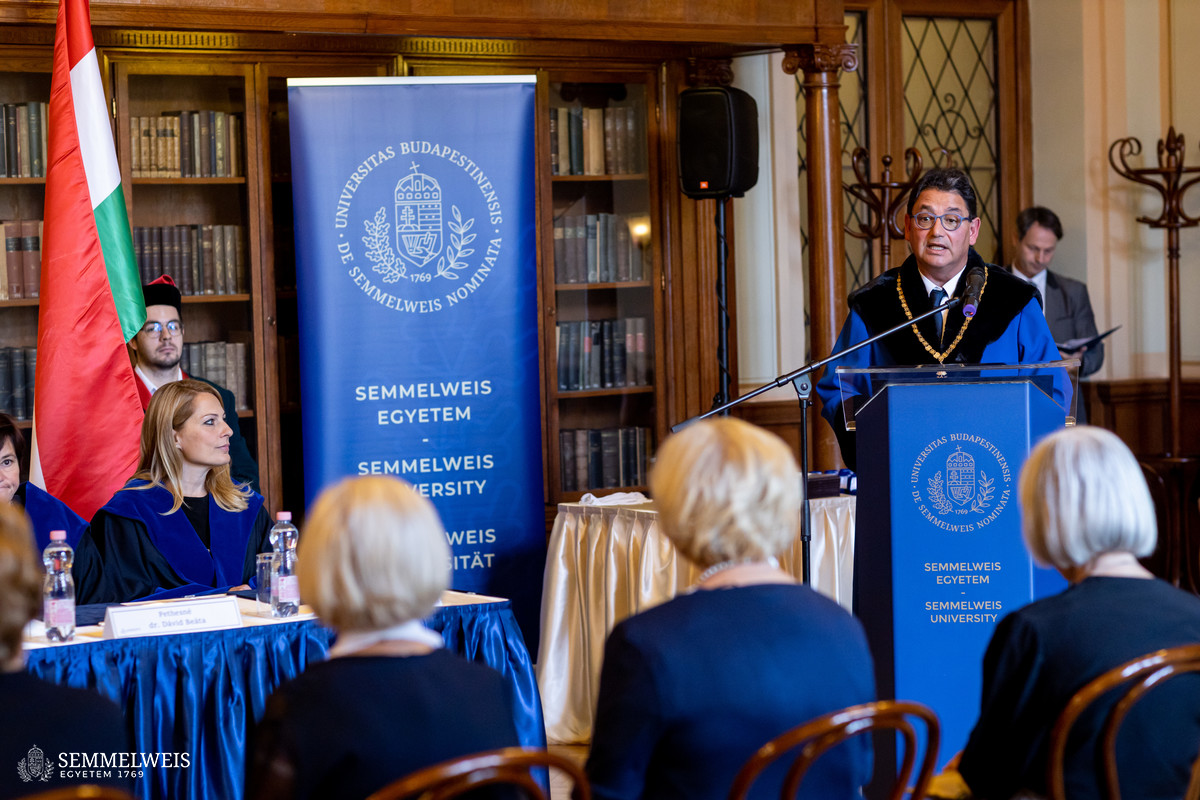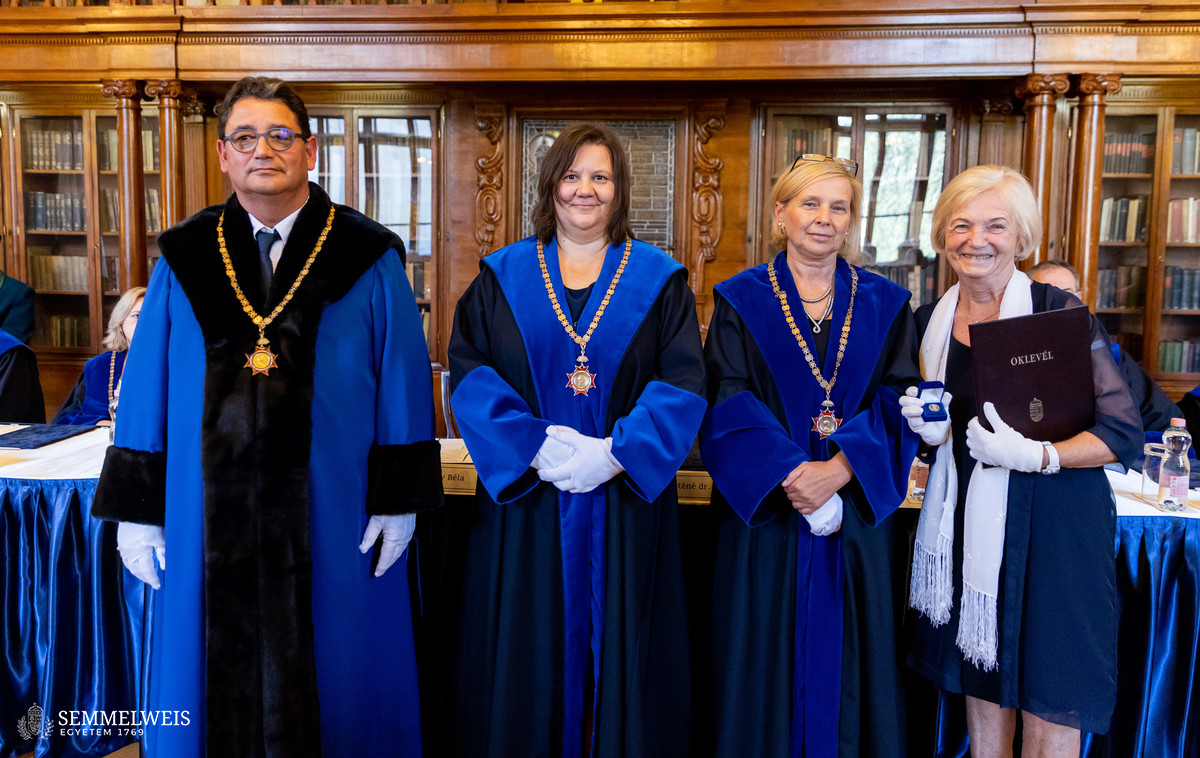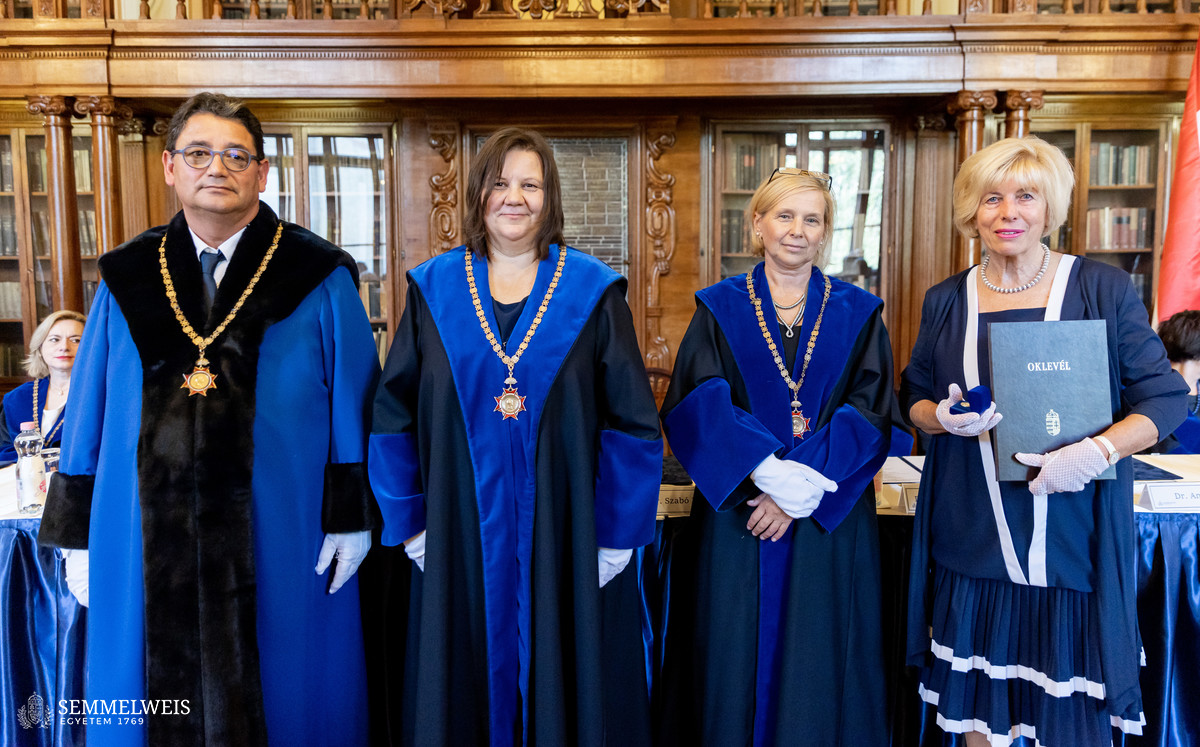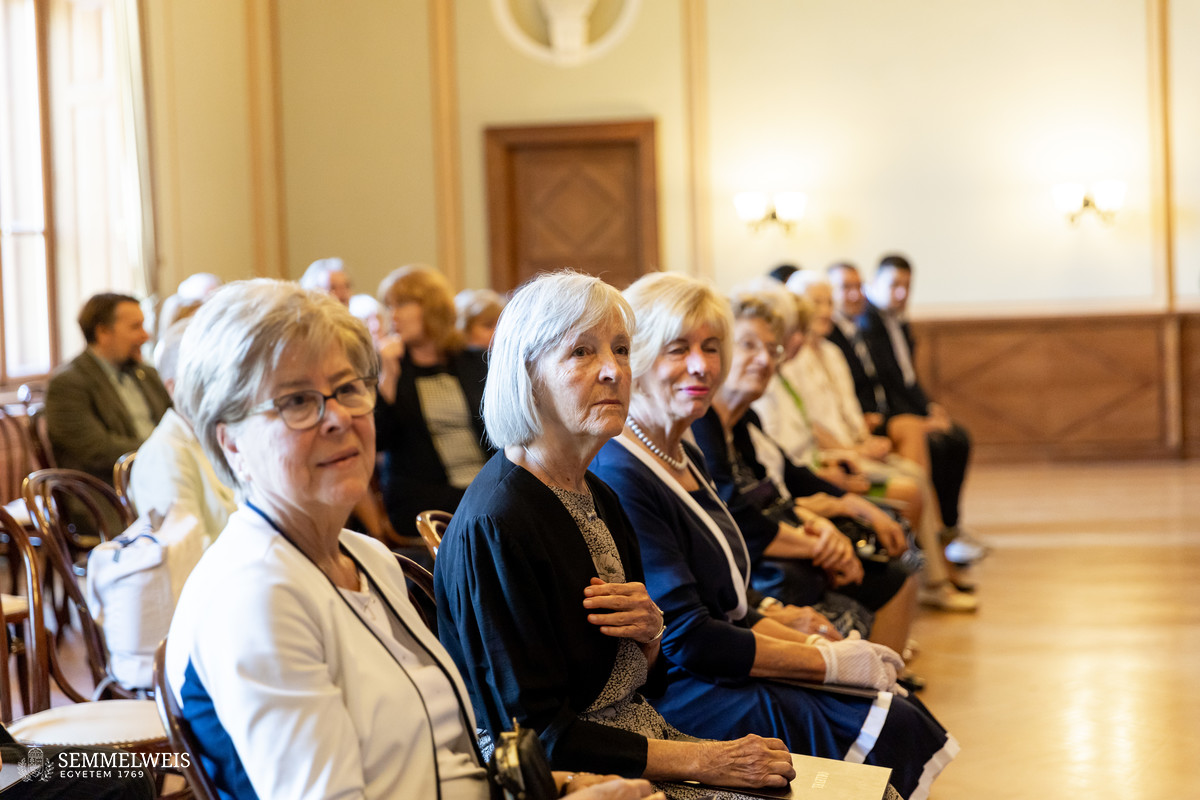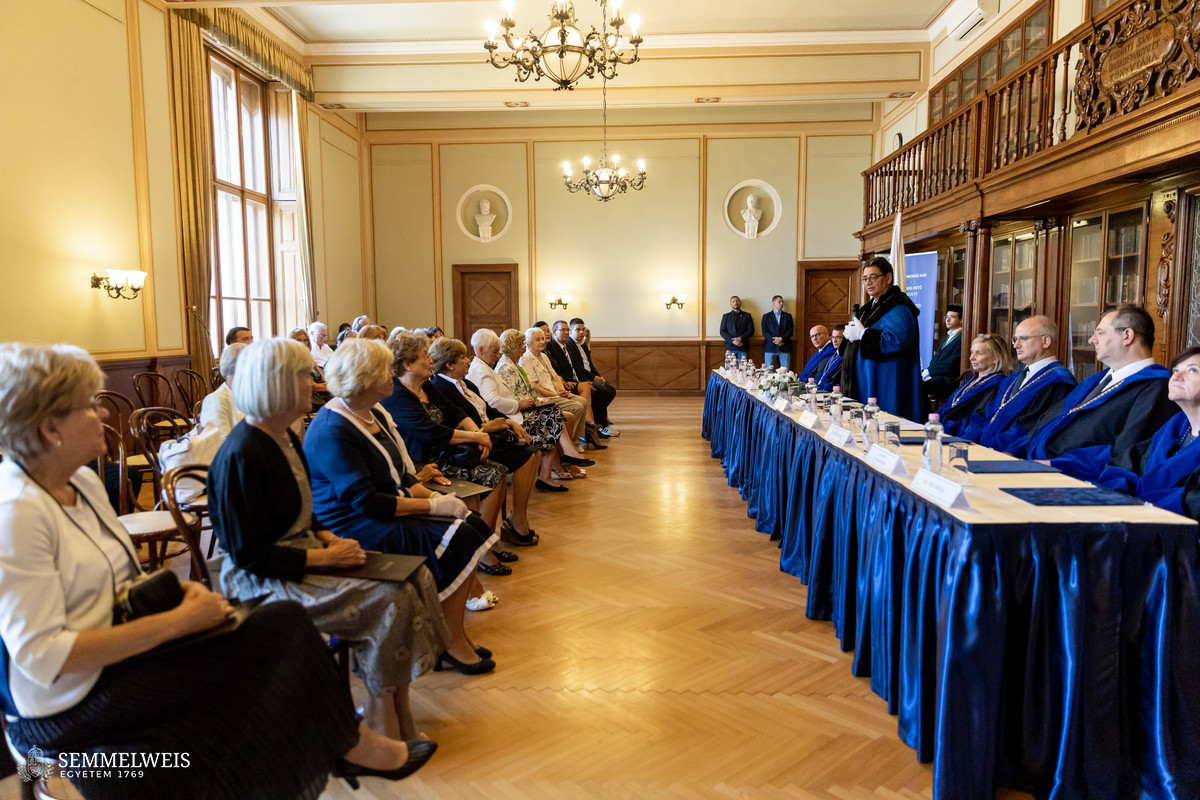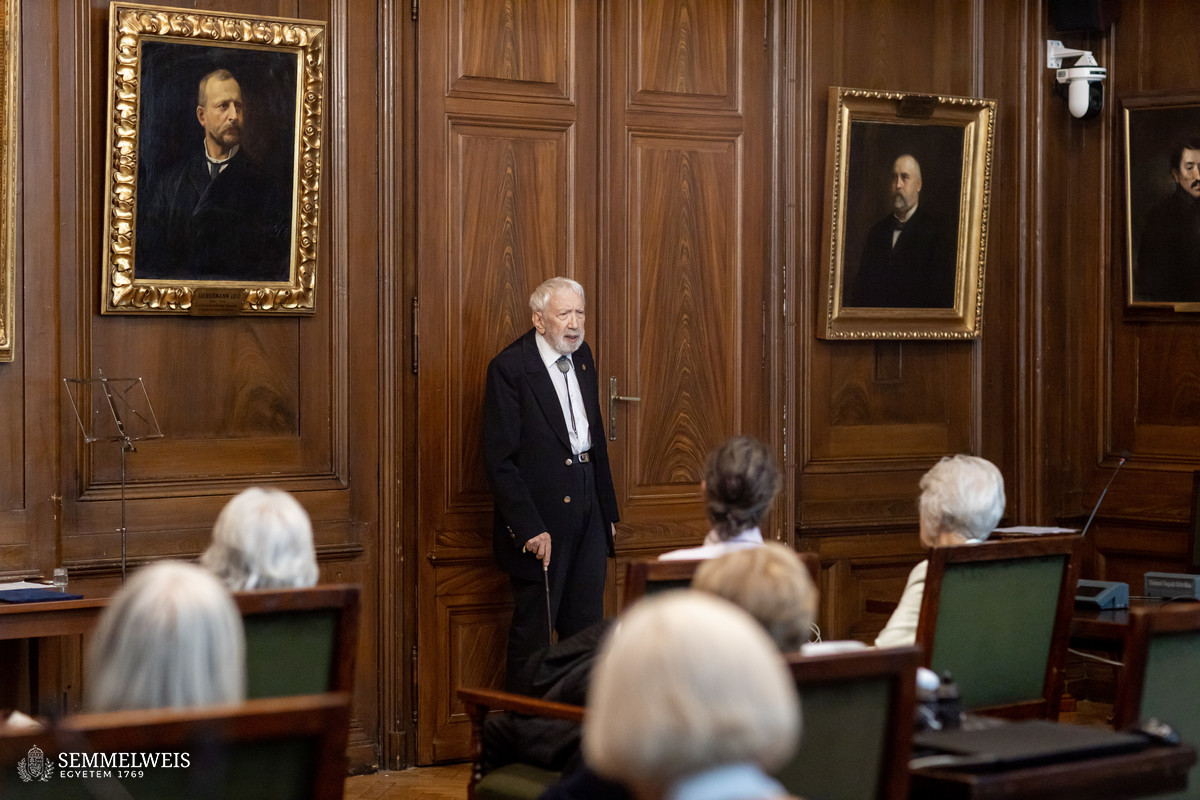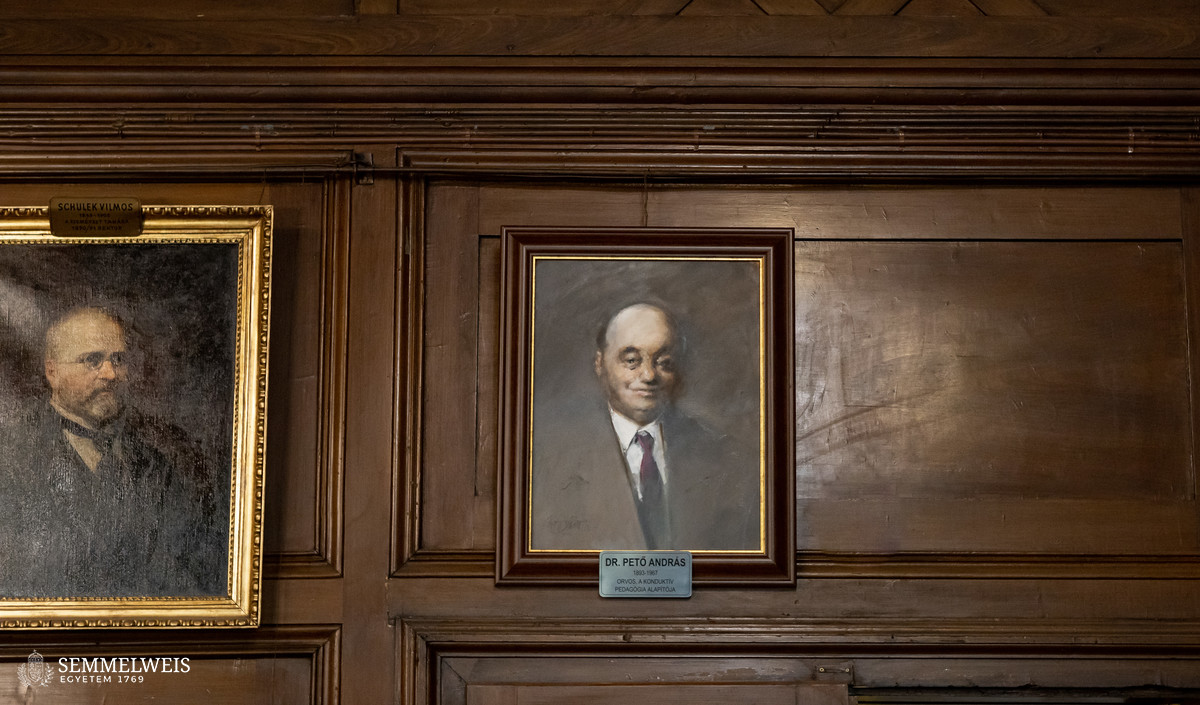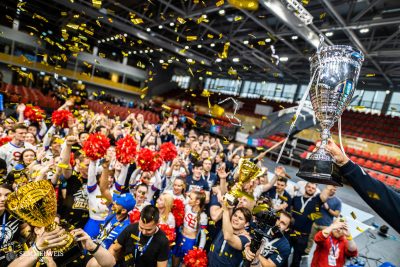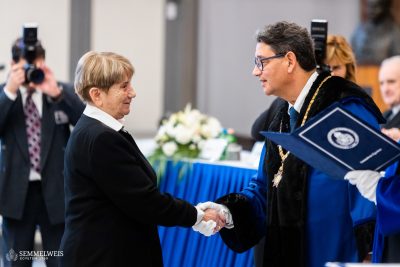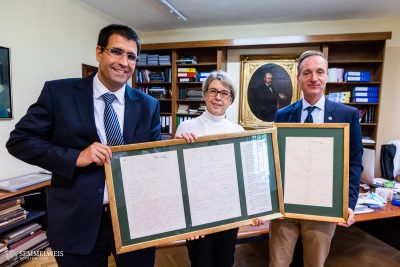Opening the ceremony, Rector Dr. Béla Merkely recalled that the current jubilants received their diplomas 50 years ago from the then Institute for the Education and Training of the Disabled. In the time since then, the conditions of training and the name of the institution that awarded the degree have been changed several times, and in 2017 the college, which now bears the name of András Pető, joined Semmelweis University as András Pető Faculty. “However, in these changing times and circumstances, you have continued to do what you swore to do. This half century alone demands respect,” he said. Your former diploma and the gold diploma awarded to you today are testimony to humanity, dedication and courage. It takes humanity to give faith and hope to those in need. Devotion to dedicate your life to healing, courage to choose a path that very few have taken before you,” he added.
Dr. Béla Merkely emphasized that they have acquired, applied and passed on a special vision and knowledge, which was considered a pioneer at the time – and today it has become world-famous, an outstanding value among Hungarian intellectual treasures, a true Hungarikum.
You are the backbone of world-class conductor training, a strong foundation on which the PAK can build to this day, and your half-century-long career alone proves the authenticity and the life-changing impact of the Pető method,”
he addressed the gold graduates.
Dr. Miklósné Tenk Dr. Andrea Zsebe, Dean of the András Pető Faculty, emphasized that those who graduated in the period between 1968 and 1972 could already acquire such complex philosophical, educational, and medical knowledge, which enabled them to understand and apply the methods and tools of conductive pedagogy, and many of them could teach as leaders, teachers and practitioners.
The Dean emphasized that the principles of higher education in conductive education have remained unchanged for 57 years, with the same focus on conductive pedagogical practice. “Our accession to the university in 2017 has enabled us to maintain our identity and ensure the maintenance and development of the method,” she said, adding that the university provides them with a strong professional, economic and research potential, which they have used to renew their buildings and create new educational and community spaces over the past five years. We can provide a competitive special education diploma that, after all these years, is still able to respond to the challenges of educating children with special educational needs and to prove itself in the field of adult rehabilitation, either independently or in a team,” she said.
The celebration continued with the presentation of the jubilee certificates of honour, which were presented to the 26 conductors who graduated in 1972 by Dr. Béla Merkely, Rector, Dr. Miklós Tenk, Dr. Andrea Zsebe, Dean of the Faculty and Dr. Éva Szabó Feketéné, Director of the KPK.
Afterwards, Professor Emerita Dr. Dezsőné Horváth gave a speech on behalf of the jubilants, thanking them for their efforts to cherish the past. The ceremony concluded with a performance by Csilla Márton Virág, oboist of the Medic Orchestra.
Afterwards, the unveiling ceremony of the portrait of Dr. András Pető was held in the Senate Hall. “Our institution has been made great by a series of important predecessors and leading personalities, to whom we pay tribute to this day. Here, in the Senate Hall, we make important decisions for the future under their watchful eyes,” Dr. Béla Merkely said. “In addition to the portraits of our founders, Maria Theresa and Péter Pázmány, and our namesake, Ignác Semmelweis, you can see here many outstanding personalities of our university, renowned teachers, pioneering healers and members of medical dynasties.
The fact that András Pető’s portrait is placed here today is a worthy expression of the respect and appreciation we feel for his school-creating activity. With this gesture, we also confirm our determination to responsibly nurture and pass on the legacy of the faculty’s namesake to future generations,”
the rector pointed out.
“Our old dream has come true today with the unveiling of the portrait, for which we would like to thank the artist, László Gyémánt,” said Dr. Éva Feketéné Szabó. In her speech, the Vice-Rector for Strategy and Development stressed that the Pető heritage and the professional background and knowledge base of Semmelweis University together can be a huge opportunity for conductive education and the conductive world. She emphasized that the students and current staff and leaders of the faculty are doing their best to represent the Pető heritage at the appropriate level in the university’s educational, research and rehabilitation tasks.
Dr. Renáta Földesi, Director of the Institute of Conductive Pedagogy, as the caretaker of the Pető legacy, emphasized that this is a moment when the heritage that we were tasked to represent by our founder, will formally and informally become part of the university’s knowledge, practice and spirituality.
This room is a condensation of everything that we can see as value today. The eyes of masters and giants are fixed on us whose legacy we want to carry on, representing our professional identity as Semmelweis Citizens. This is the community in which Professor Pető now finds a place,”
she said, highlighting the need for proof and recognition as a common motif running through the lives of Maria Theresa, Péter Pázmány and András Pető. To accept and legitimize what did not conform to the conventions, social and professional constructs of the time. Their portrait is a memento of professional humility, faith and perseverance,” she concluded.
Finally, the artist, László Gyémánt shared his thoughts and expressed his gratitude for the invitation. “It was an honour for me to work on the portrait of such a great man,” he said.
Bernadett Bódi
Translation: Gábor Kiss
Photo: Attila Kovács – Semmelweis University
